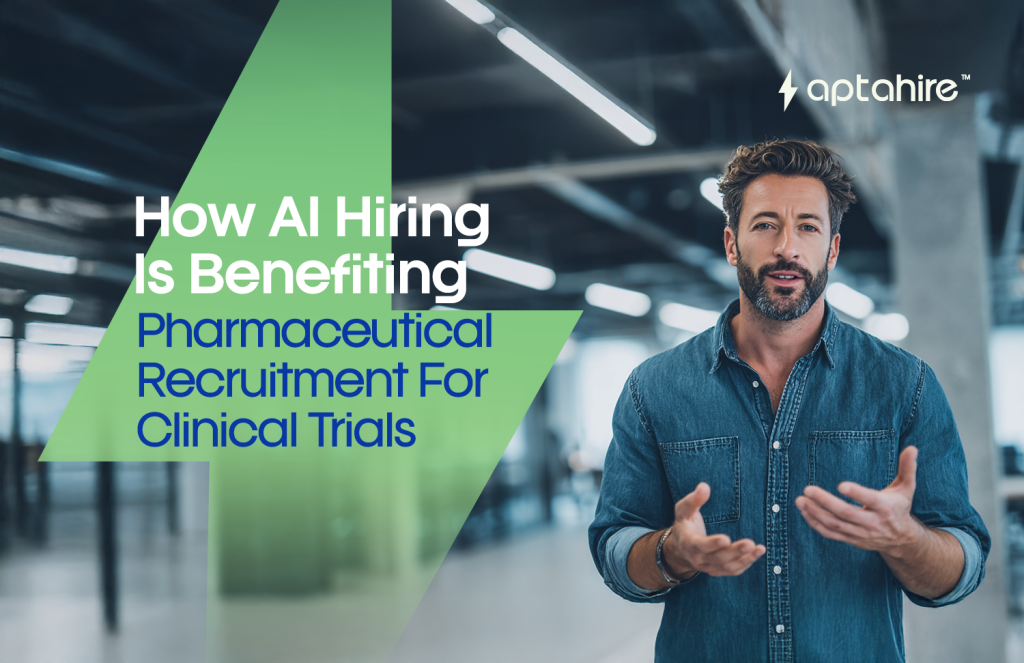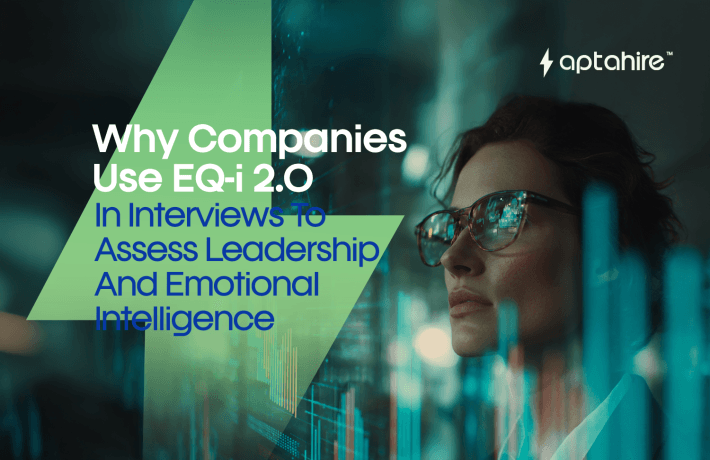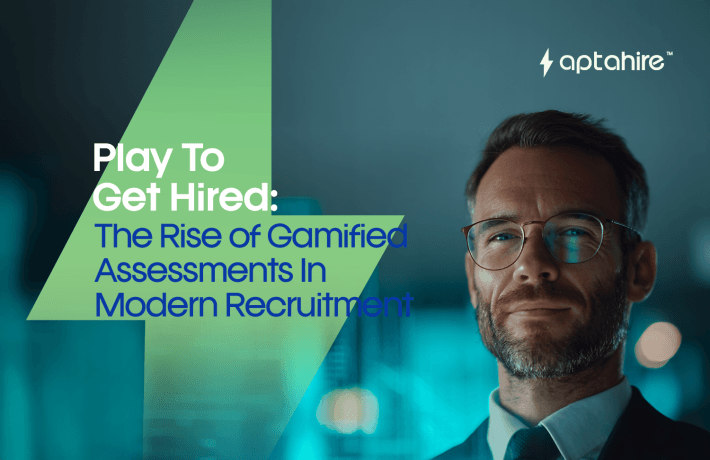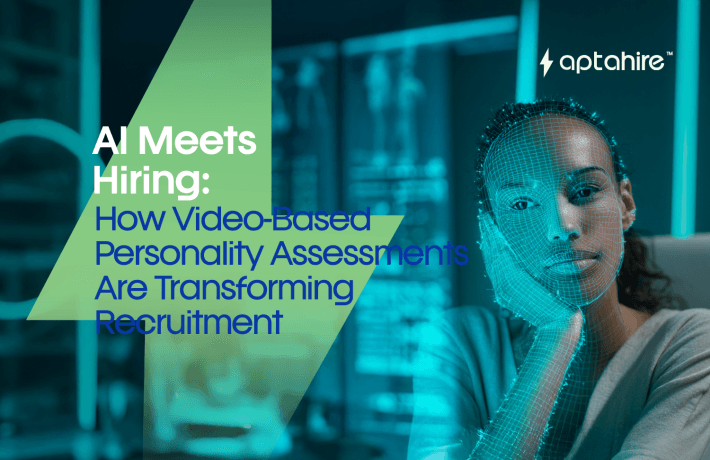How AI Hiring is Benefiting Pharmaceutical Recruitment for Clinical Trials

Clinical trials are the heart of pharmaceutical innovation. But behind every successful trial is a team of highly specialized professionals, from clinical research associates to data analysts and trial coordinators. Finding these people? That’s the real challenge.
Enter: AI in hiring.
In an industry where time is money and compliance is critical, AI is becoming a game-changer for pharmaceutical companies. From sourcing hard-to-find talent to ensuring faster onboarding for trial deadlines, let’s explore how AI hiring is reshaping recruitment for clinical trials.
The High-Stakes World of Clinical Trials
Let’s start with the basics. Clinical trials test the safety and effectiveness of new drugs or treatments. The recruitment process for these trials isn’t just about hiring someone who looks good on paper, it’s about finding professionals with:
- Niche experience in regulatory standards (like FDA or EMA)
- Medical or scientific research backgrounds
- Familiarity with Good Clinical Practice (GCP)
- Strong ethical decision-making and precision
Now imagine doing that manually, for multiple locations, under strict deadlines. It’s no wonder staffing for clinical trials is often time-consuming, costly, and error-prone.
Here’s Where AI Steps In
AI in hiring isn’t science fiction anymore, it’s a daily reality. And for pharmaceutical recruitment, it’s not just helpful. It’s essential.
1. Faster Talent Sourcing with AI
Using AI, recruiters can now scan thousands of resumes across platforms like LinkedIn, job boards, and proprietary databases in minutes. But more than just keyword matching, AI understands context.
Need someone with Phase III trial experience and knowledge of oncology treatments? AI can surface those profiles immediately, saving you weeks of manual searching.
2. Predictive Analytics for Job Fit
AI tools use predictive models to assess how well a candidate might perform in a clinical role. It looks at past job data, certifications, tenure in similar roles, and even soft skills.
This minimizes the risk of poor hires, especially in sensitive trial environments where every decision counts.
3. Automated Screening and Scheduling
No more back-and-forth for interview slots. AI can handle initial candidate screening (through smart questionnaires or video analysis) and automatically schedule interviews with qualified candidates, syncing with calendars of busy pharma teams.
This speeds up the entire hiring process, especially crucial when clinical trials are time-bound.
Ethics and Compliance? AI Has That Covered Too.
Pharmaceutical hiring is heavily regulated. AI systems can be trained to identify red flags such as missing compliance certifications, lapses in licensing, or incomplete documentation.
Additionally, AI hiring platforms now offer bias mitigation algorithms, ensuring that candidates are evaluated fairly regardless of gender, ethnicity, or age, a huge plus in meeting diversity standards in trials.
Remote Hiring, Global Trials
Many pharmaceutical companies now conduct global clinical trials; across India, the US, Europe, and beyond. But hiring across borders means handling multiple languages, local certifications, and time zones.
AI hiring tools can:
- Translate resumes and interviews in real time
- Verify international credentials
- Filter candidates by region-specific regulations
It’s like having a multilingual, compliance-savvy recruiter that never sleeps.
Real-World Example: How a Biotech Firm Reduced Time-to-Hire by 60%
A mid-sized biotech company running Phase II oncology trials adopted an AI hiring solution to source clinical trial coordinators. Previously, it took 8 weeks to hire. With AI integration, they slashed it to just 3 weeks.
Not only did they save on recruitment costs, but they also accelerated their trial timeline, reaching FDA submission 2 months earlier than planned.
Challenges and What to Watch Out For
No technology is perfect. While AI can streamline many recruitment processes, it’s still essential for humans to:
- Oversee ethical considerations
- Conduct final interviews
- Bring emotional intelligence to candidate evaluation
The key is using AI as an assistant, not a replacement.
The Future: AI-Driven Trial Teams
As pharmaceutical trials become more complex and decentralized, the need for faster, smarter, and scalable recruitment will only grow. AI hiring solutions will likely integrate deeper with:
- Electronic Trial Master Files (eTMF) to cross-check staff credentials
- Remote onboarding tools
- Wearable tech and monitoring platforms to assess field staff productivity
Conclusion: Precision Hiring for Precision Medicine
The pharmaceutical industry is moving fast, towards personalized medicine, faster approvals, and data-driven decisions. Hiring needs to keep pace.
AI hiring isn’t just a tool, it’s a strategic advantage for clinical trials. It brings speed, accuracy, compliance, and scalability, the four pillars every pharma company needs to run successful trials in today’s competitive landscape.
As the old saying goes, “The right team can make or break a trial.” With AI, finding that right team just got a whole lot easier.
FAQs
- How is AI used in clinical trial recruitment?
AI analyzes massive datasets; like patient records, demographics, and trial requirements, to match eligible candidates to specific clinical trials. It also predicts patient engagement and dropout risks, helping recruiters onboard participants faster and more efficiently.
- What benefits does AI offer for pharmaceutical hiring teams?
AI streamlines candidate sourcing, speeds up screening, and ensures better-fit hires by analyzing resumes, skillsets, and historical data. For clinical trial roles, it ensures regulatory and compliance alignment while improving accuracy in candidate selection.
- Can AI really speed up the hiring process for clinical trials?
Absolutely. AI tools drastically reduce the time spent manually reviewing resumes and conducting preliminary assessments. They prioritize qualified candidates and automate scheduling, which can cut down recruitment time by 40–60%.
- How does AI ensure quality candidates for pharmaceutical trials?
AI uses advanced algorithms to assess not just technical qualifications but also patient data integrity, prior trial experience, and behavioral signals to identify top-tier, trial-ready candidates with high compliance potential.
- Does AI reduce bias in pharmaceutical recruitment?
Yes. AI, when properly trained, screens candidates based solely on data-driven metrics, like skills, qualifications, and experience, minimizing unconscious human bias and promoting diversity in recruitment for clinical roles.
- What kind of roles can AI help recruit in clinical trials?
AI can assist in hiring a range of trial-specific roles, such as clinical research associates (CRAs), data managers, pharmacovigilance officers, and even patient volunteers, ensuring the right talent is brought on board efficiently.
- How does AI support patient recruitment in trials?
AI platforms can analyze EHRs (Electronic Health Records), behavioral data, and geographical data to identify eligible participants for trials. They also send automated outreach, track responses, and predict enrollment success rates.
- Is AI secure and compliant with pharmaceutical regulations?
Yes. Most AI hiring platforms used in pharma recruitment comply with global regulatory standards like HIPAA, GDPR, and FDA guidelines, ensuring data privacy and legal compliance throughout the hiring lifecycle.
- Can AI reduce dropout rates in clinical trials?
Yes. AI can flag early behavioral patterns and predict the likelihood of participants dropping out. This allows recruiters and researchers to proactively engage, communicate, or replace candidates when necessary.
- Will AI replace human recruiters in clinical trial hiring?
No. AI is a powerful assistant but not a replacement. It handles repetitive tasks and provides data insights, while human recruiters still make the final judgment calls, build relationships, and ensure cultural and ethical alignment.



